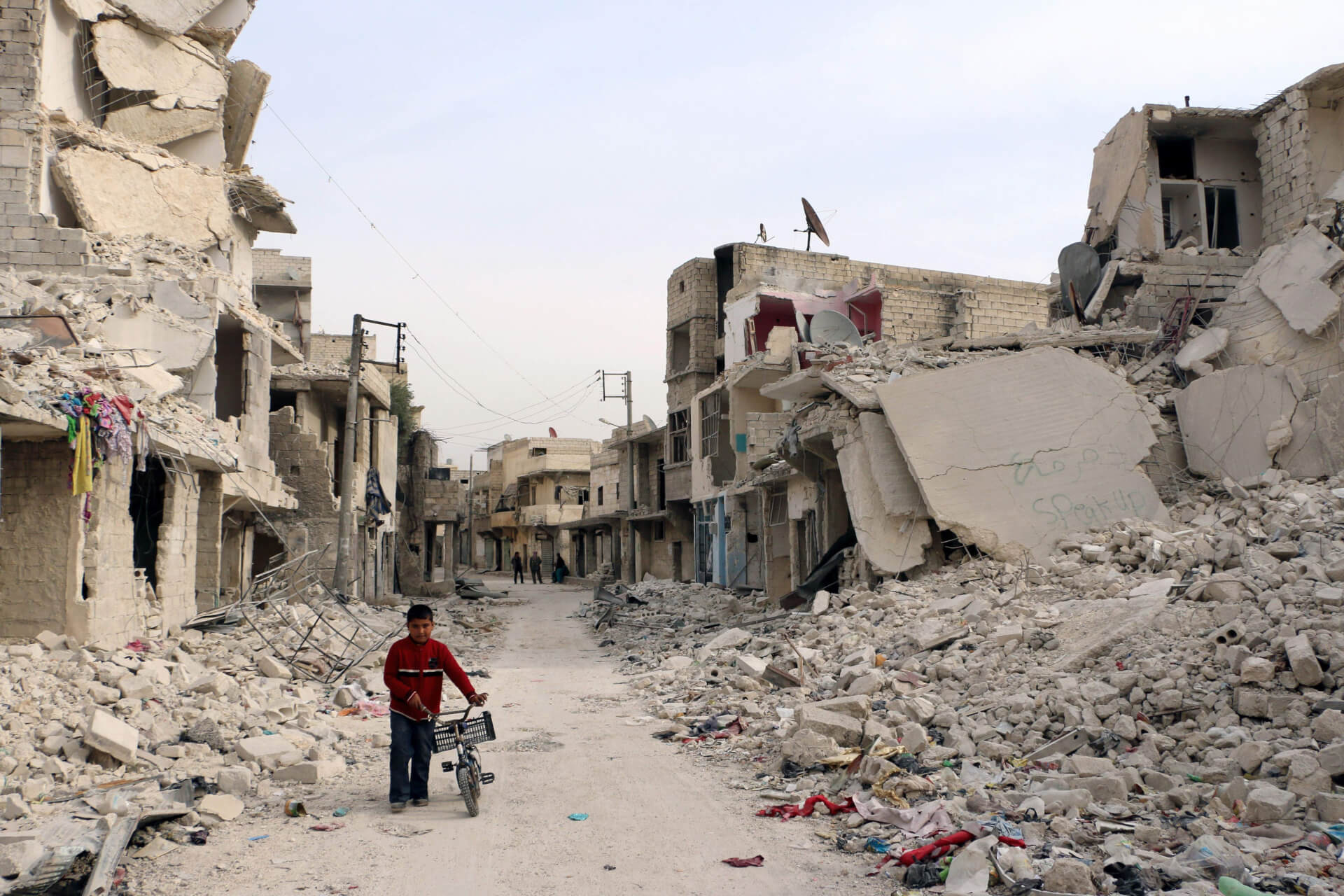India's long-standing diplomatic relations with Syria, cordial relations with USA and Russia, and its dependence on the Middle East for oil, have made it reluctant to take a strong stance in the Syrian civil war. However, the screams of the Syrians have grown louder after repeated human rights violations, the geopolitical crisis has intensified with the involvement of multiple foreign actors, and the stakes have never been greater following the introduction of the Islamic State of Iraq and Syria (ISIS).
The time has come for India to pick a side: will it be isolationism, supporting Bashar al-Assad's regime, diplomatic intervention, humanitarian aid, military intervention, or counterterrorism?
The Indian and Syrian governments share a long history of cordial relations, owing to a similar colonial past and membership to the Non-Alignment Movement. In addition, India supported Syria in the Golan Heights issue, while Syria supports India in the Kashmir issue. There have also been multiple high-level ministerial visits, such as Nehru's visits to Syria in 1957 and 1960, former Minister of State for External Affairs MJ Akbar's visit to Syria in 2016, and Syrian Foreign Minister Walid Muallem's visit to India in 2018, which have bolstered diplomatic ties. Furthermore, India was also one of the few countries to maintain diplomatic ties with Syria during the war.
While India has thus far declined to get overtly involved in the civil war, citing Syria's sovereignty, it has offered tacit support for Assad's leadership by not supporting regime change or condemning various human rights violations under his rule. It has also condemned Turkish aggression in northern Syria. India's position is also influenced by the execution of 39 Indian construction workers in Iraq in by ISIS in 2018. India is thus wary of criticizing leadership in Iraq or Syria in order to safeguard the security of its citizens and maintain favour with both governments, as it relies on to keep terrorist elements like ISIS at bay.
Moreover, given its troubled history with intrusions into the military conflicts of its neighbours, India is naturally reticent to get involved in foreign conflicts, as it has often ended in a bloodbath, like in the Sri Lankan conflict in the 1990s. Since then, it has been quite sceptical of its role and capability in ending conflicts peacefully.
In addition, India shares a good relationship with the US and Russia, the two main foreign players in the Syrian war and taking a side would mean compromising its relationship with the other and its allies. Furthermore, India’s reliance on the Middle East for oil and gas imports is another factor in its reticence to take a strong position.
How then can India get involved?
Although India's inaction helps it maintain political ties, its inability to balance its interests and responsibilities draws into question its ability to be a responsible power from a humanitarian perspective. India has always demanded mediation through peaceful dialogue and has encouraged UN talks in the country. Therefore, it can leverage its alliance with Syria to push for formal dialogue by bringing the concerned parties to the table and help to resolve the conflict. This could help India to establish its position not only in Syria, but globally, as an aspiring superpower.
Secondly, India can assist Syria in the developmental process. It has already evinced its willingness to help Syria through investments in projects amounting to $20 billion. India has also pledged $4 million in humanitarian assistance of $4 million, welcomed a number of Syrian refugees, supported the construction of the Tishreen Power Plant under an Indian Line of Credit, and granted scholarships for over 1,000 Syrian students.
With international organizations failing to improve the situation, and major powers intervening for their own geostrategic goals, India can take the lead in resolving this humanitarian crisis. This could be a major milestone for India in its aspirations to become a responsible global superpower by handling the issue through diplomacy and development rather than military intervention. India must, therefore, take a stand through the use of soft power to help the war-torn country.
Reference List
Roche, E. (2019, June 10). India Is One of the Few Countries Helping Sanctioned, Wartorn Syria Rebuild. Retrieved from https://www.checkpointasia.net/india-is-one-of-few-countries-helping-sanctioned-wartorn-syria-rebuild/
Sharaf, O. (2015). Views of India from the Conflicting Parties in Syria. Competing Visions of India in World Politics, 160—174. doi: 10.1057/9781137398666_11
Why India's Silence On The Chemical Attack In Syria Is Deeply Worrying. (2017, April 17). Retrieved from https://www.youthkiawaaz.com/2017/04/where-does-india-stand-in-terms-of-the-syrian-civil-war/
Yassin-Kassab, R., & Al-Shami, L. (2016). Burning Country. doi: 10.2307/j.ctt19b9k02
Image Source: New Statesman America

